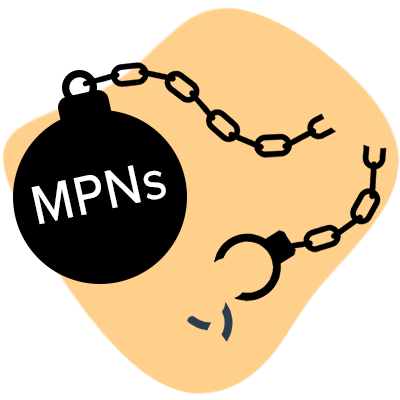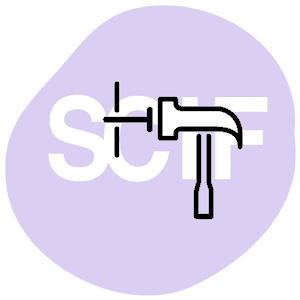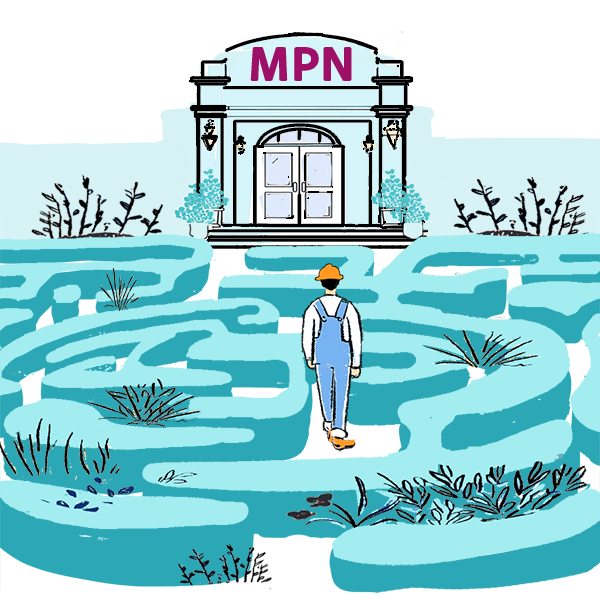CA Provider Breaks MPN Shackles (and You Can Too)

The Medical Provider Network (MPN) system is the bane of California workers’ comp — a system so convoluted, dysfunctional, and inimical to properly providing care to injured workers that even adjusters and payer defense attorneys openly decry it.
Still, many providers join MPNs for fear of losing eligibility to treat injured workers. But as daisyNews has long insisted, providers don’t need MPNs. MPNs need providers.
For example: in response to our report on the departure of yet another practice from workers’ comp, a provider shared how they “ditched” MPNs. We are publishing this provider’s comment as a reminder that providers hold 100% of the power to stop the MPN abuse.
FACT: If an employer chooses to use an MPN to restrict injured workers’ access to care, California law requires the MPN to adhere to strict standards for the number and locations of primary and specialist providers listed.
In other words, MPNs will cease to exist if doctors refuse to participate — because without enough doctors, the MPNs are unable to adhere to the legally mandated access standards.
It’s time for providers to take the power back from MPNs, as the provider below did. Together, we’re stronger.
The Joy of “Ditching” MPNs
Behold what’s possible for providers who aren’t intimidated by MPNs (lightly edited for clarity and emphases added):
“We ditched all the MPNs that we were associated with. We are seeing the rewards every day.
We no longer suffer the PPO discounts, that as you point out, are shared by these poisonous companies. I would have never taken the risk to end those contracts if it weren't for my research backed by daisyBill.
Because we are in a rural area and ancillary providers (Physical Therapy), we didn't need to be in any MPNs to treat injured workers. The last [network] we ditched is Medrisk. I am so happy to end that contract because they are very costly to do business with.
They have demands they want filled right now but when you ask where the payment is they are not too quick to respond and make you do so much more paperwork than you could imagine relating to any contact with them. Their patients often no-show which is a major revenue drain hole.
I found that the only important issue is when accepting an injured worker that we get authorization that specifically states treatment is authorized for out-of-network provider. They still pull delay tactics for various ridiculous reasons like "missing provider state license number" or "no prior authorization" which Preferred Employers tried to say. That one I had to do a DWC SBR-1 form on. And had to threaten the adjuster a little bit but they did finally pay. It just took longer on that one.
We are in charge now and we decide if we will treat the injured worker. But the shoe is on the other foot now. The payments are well worth it! Thanks daisyBill for all you do to keep us informed!!!”
It isn’t only rural providers who have leverage. As more physicians refuse to treat injured workers, the scarcity of providers considerably increases their leverage throughout the state.
The MPN Nightmare
As we’ve reported countless times, MPNs have an intended function and an actual function.
- The intended function: MPNs allow employers or insurers to restrict injured employees to a pool of trusted providers, presumably eliminating “fraud” and ensuring cost control.
- The actual function: MPNs are too often used as a cattle prod to push providers into discount reimbursement contracts with Preferred Provider Organizations (PPOs) and as an excuse (often erroneously or falsely) to deny reimbursement for services rendered.
Believing that MPN participation is conditional on PPO participation, doctors often think that sacrificing revenue is the only way to maintain eligibility to treat injured workers.
Meanwhile, there are thousands of MPNs listed by the California Division of Workers’ Compensation (DWC), any of which can add and remove providers at a whim. Yet the DWC hasn’t bothered to establish any way for providers to check whether an MPN applies to a given employee or whether the provider is a member — allowing this Byzantine system to create even more PPO profits.
Waking Up From the MPN Nightmare
Providers are forgetting their ace in the hole: MPNs have legally mandated access standards. And those access standards (though inadequately enforced) make it critical for MPNs to recruit providers.
California Code of Regulations Section 9767.5 dictates:
-
When employees are restricted to seeking care within an MPN, the MPN must list at least three available physicians of each specialty to treat injuries common to the employees’ occupation or industry.
-
The MPN must list at least three available Primary Treating Physicians and a hospital or provider of emergency services within 30 minutes or 15 miles of each covered employee's residence or workplace.
-
The MPN must list providers of occupational health services and specialists who can treat injuries common to the occupation or industry within 60 minutes or 30 miles of a covered employee's residence or workplace.
MPNs are legally bound to ensure that enough providers (including specialists specific to the occupation or industry) participate to cover every employee restricted to that MPN.
By participating in an MPN, providers are doing the MPN a favor — not the other way around.
MPNs can work as legislators intended. But until more providers assert their positions and push back against MPN abuse, certain entities will always use MPNs to fatten their bank accounts at the expense of practice revenue.
Providers can review and renegotiate those discount reimbursement contracts and constantly challenge improper MPN-based payment denials. daisyBill experts are here to assist in both of those efforts.
And remember: workers’ comp needs providers, not MPNs. It’s time to reclaim the power.
daisyBill makes treating injured workers easier, faster, and less costly. Request a free demonstration below.
REQUEST DEMO
DaisyBill provides content as an insightful service to its readers and clients. It does not offer legal advice and cannot guarantee the accuracy or suitability of its content for a particular purpose.



.png)

.gif)
Your points are well made regarding MPNs (Medical Provider Networks) within the workers' compensation (W/C) system. Our decision to continue involvement in certain MPNs is driven by the necessity to coordinate care with referring physicians and maintain longstanding relationships with these providers.
The W/C system requires a significant investment that practices must make to navigate the complexities of the W/C system, particularly in staffing and understanding the referral processes. The expense incurred is substantial and underscores the commitment to patient care within this specialized field.
I am by no means a fan of MPNs and I recognize the drawbacks of MPNs from a patient care standpoint. While payors may see short-term savings through reduced OMFS (Official Medical Fee Schedule) rates, it often results in the delay in treatment and hindrance to care coordination for the patient, which leads to more prolonged and costly treatment paths.
I recently saw a corrections officer who witnessed an inmate hanging/fatality. It took him eight months to see a psychologist. He was off work and his symptoms persisted until he participated in brief therapy. He returned to work, TPD and soon was working without restrictions.
This example illustrates the consequences of delayed access to medically necessary treatment, resulting in extended work absence and persistent symptoms for the patient. It underscores the importance of advocating for streamlined processes within the W/C system that prioritize timely access to care for patients, while acknowledging the intricate network of relationships that facilitate effective patient management.
The Daisy News is a valuable resource for me as a provider and I particularly look forward to the direct, honest questions and comments you make to DWC, Payors and anyone else that is listening.
Does daisyBill provide any guides or webinars on how providers can operate in the work comp arena without being in MPNs?